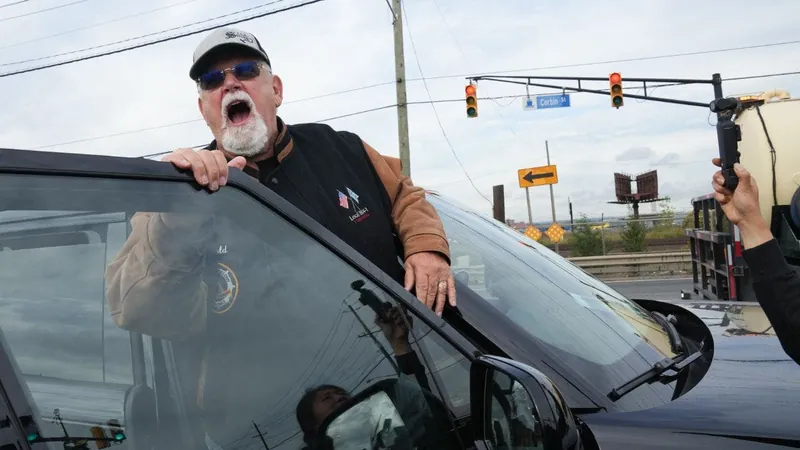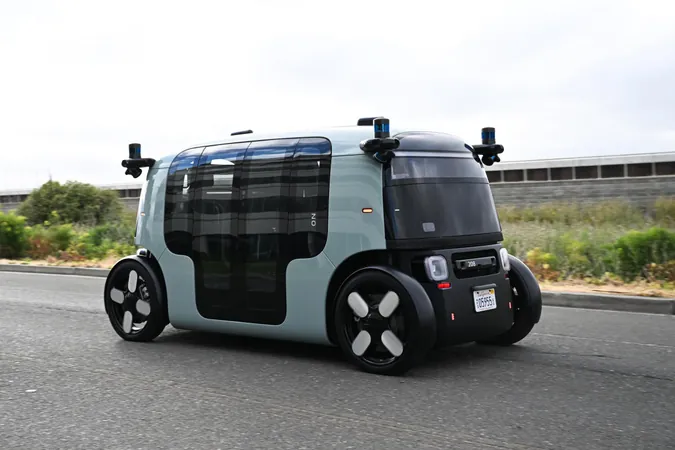
Dockworkers Strike: Union Leader Warns Against Automation & Its Impact on Jobs
2024-10-03
The ongoing strike by dockworkers in the U.S., led by International Longshoreman's Association (ILA) President Harold Daggett, has sparked heated discussions about the growing trend of automation in various sectors, including ports. Daggett has voiced strong opposition to technological advancements that he believes are putting workers out of jobs.
In a recent interview shared on the ILA's YouTube channel, Daggett highlighted the dangers of automation, citing examples like automated toll booths and self-checkout machines as detrimental to employment. "Take EZPass," he remarked, discussing the electronic toll collection system that allows seamless travel through tolls without the need for manual payment. "When EZPass was first introduced, people didn’t realize that it meant fewer union jobs at toll booths."
He elaborated, stating, "Now, all those union jobs are gone, and it's all about EZPass. Everyone’s got an easy pass on their windshield, breezing through while the union worker in the booth is left behind." This shift away from human labor has been a consistent concern for Daggett, who insists that society has become desensitized to the implications of such changes.
Moreover, Daggett criticized the increasing prevalence of self-checkout systems in retail environments, urging lawmakers to reconsider the rapid advancement of automation technologies. "You go into a store today, and it’s self-checking everywhere — they don’t need anyone at the checkout," he lamented. "Someone in Congress needs to hit the brakes. This world is moving too quickly. Machines need to stop."
The strike, which has paralyzed operations at dozens of East and Gulf Coast ports, has become critical, disrupting trade that accounts for about half of U.S. imports. The union is fighting for better wages and safeguards against the encroachment of automation as they negotiate a new contract with the U.S. Maritime Alliance (USMX), the organization representing port employers.
As the strike continues, concerns have mounted over the potential cascading effects on critical U.S. industries, including manufacturing and logistics, exacerbating an already fragile economic landscape fueled by labor disputes and technological change.
In recent months, Daggett has also faced scrutiny regarding his compensation and lifestyle, further complicating the narrative around the labor movement and its leaders. As the public discourse on automation evolves, the plight of dockworkers remains an essential chapter in the broader conversation about the future of work in America.


 Brasil (PT)
Brasil (PT)
 Canada (EN)
Canada (EN)
 Chile (ES)
Chile (ES)
 España (ES)
España (ES)
 France (FR)
France (FR)
 Hong Kong (EN)
Hong Kong (EN)
 Italia (IT)
Italia (IT)
 日本 (JA)
日本 (JA)
 Magyarország (HU)
Magyarország (HU)
 Norge (NO)
Norge (NO)
 Polska (PL)
Polska (PL)
 Schweiz (DE)
Schweiz (DE)
 Singapore (EN)
Singapore (EN)
 Sverige (SV)
Sverige (SV)
 Suomi (FI)
Suomi (FI)
 Türkiye (TR)
Türkiye (TR)